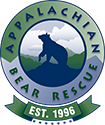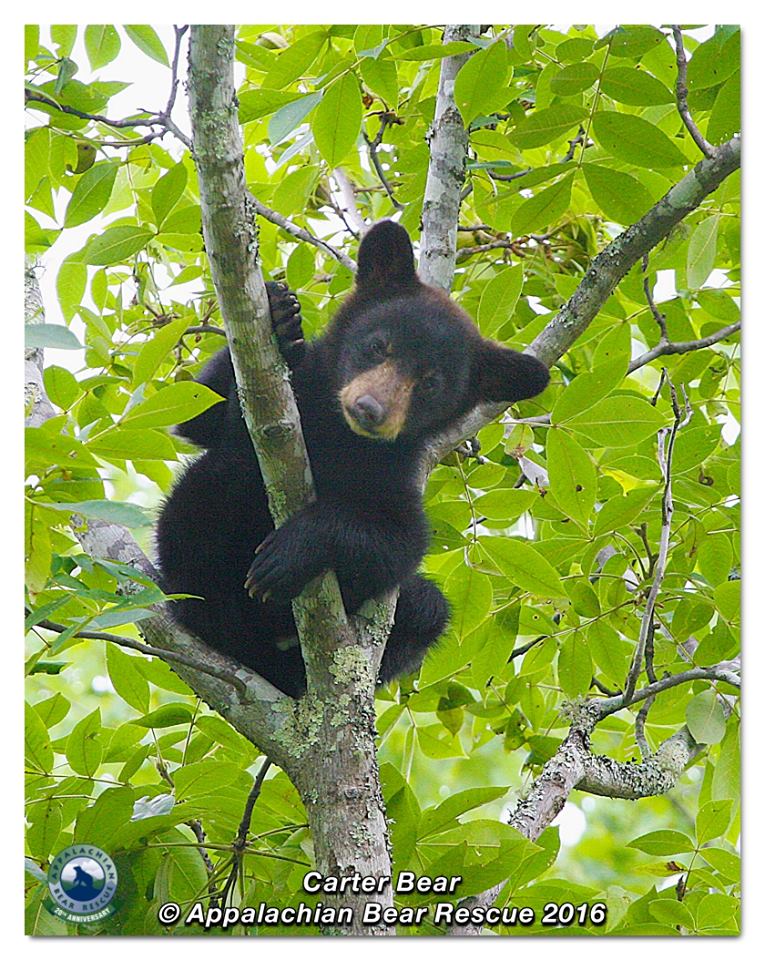We apologize for the delay in posting, but it’s a busy season. And as you know, ABR is currently without cubs. Today we offer photos and brief information about three more cubs from our past.
Carter Bear is first up. Carter was found, staggering down a road in Carter County (hence his name) in June 2015. He was severely dehydrated due to the hot weather we were experiencing, and was somewhat underweight at just 12.86 pounds. A big concern was that he suffered from heat stroke and the curators observed him walking in circles and walking backward. His prognosis didn’t look good but little bears are amazingly resilient and he responded very well to good nutrition, hydration and rest. He soon was out in the Wild Enclosure with other cubs and Carter was released back into the wild in Carter County in early November weighing 77 pounds!

Carter Bear was a handsome little cub and became a favorite of our followers.
Cornelius Bear was rescued and brought to ABR in January of this year. He was a yearling, one of many needy yearlings admitted this year, due to the near failure of the mast crop in 2015. Cornelius struggled at ABR until he expelled a large balloon that he had eaten in his search for food before his rescue. Another example of the dangers that our trash pose to bears and other wildlife! Cornelius recovered quickly and was ready for release in April, weighing a healthy 65 pounds.

Cornelius thrived in the Wild Enclosure after ridding himself of the balloon.
Easter Bear was a special case. She was admitted on Good Friday in 2011, weighing just under 3 pounds at 2 1/2 months of age. She was severely dehydrated and required round the clock care for several weeks. Due to the dehydration, her eyes were a particular concern and it was determined by the UT vets that she had lost the vision in one eye completely. She grew and seemed healthy enough, but would she be able to live in the wild? The doctors at UTCVM decided that her one good eye would suffice to permit her to be released and she was released in November, weighing 82 pounds.

Easter Bear grew to be a rather large cub by release time.
ABR has cared for many cubs during the past twenty years, and each one is different and special. If we are needed, we will welcome the next residents when they arrive.


